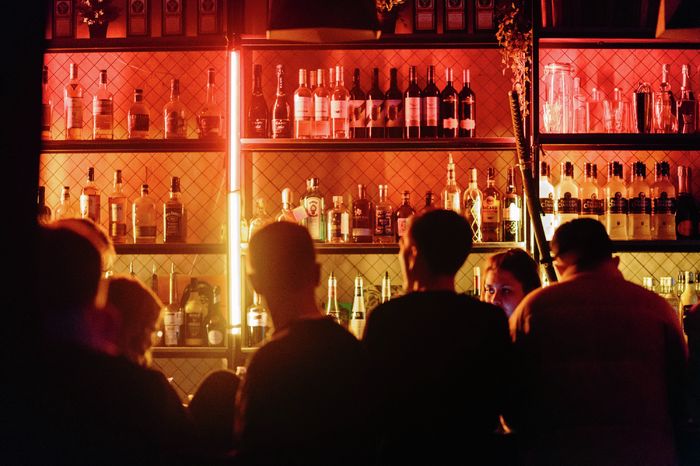Does Cambridge clubbing deserve its poor reputation?
Varsity investigates the wide-ranging criticisms levelled at the city’s nightclub scene

Cambridge clubbing has faced a number of criticisms in recent months. Increased ticket prices and overselling by clubs have led to students being turned away at the door, overwhelmed on dancefloors and overcharged for tickets, whilst many have reported issues with bouncers at clubs, most recently at Lola Lo.
Lack of disabled access to Cambridge’s clubs has also caused consternation, and long waiting times for clubs have left students frustrated. In this investigation, Varsity asks the question: Does Cambridge clubbing deserve its poor reputation?
Queues and overcrowding
Queue times for clubs in Cambridge have been described as “ridiculously long” by students, even in instances when club goers have purchased tickets in advance.
It is not uncommon for students who have bought tickets in advance to queue and be refused entry without receiving a refund. One student in this situation detailed how on one night: “We bought tickets which promised that we’d gain entry to Lola’s provided we had queued before 11:15 which we did” They weren’t let into the club, and described the bouncers as “very dismissive” of the situation.
The student expressed how frustrating it was to be refused entry since they, and others, lost money as a result of clubs overselling the tickets.
Upon entering clubs in Cambridge on student nights, the effects of overcrowding are obvious. Though some complaints of congestion are light-hearted, with one student lamenting their inability to “boogie at Rumboogie”, one of the most popular student nights, many have expressed more serious concerns.
One anonymous student described to us how they “consistently avoid going to specific club floors” because they are “scared of getting crushed”. They continued: “As soon as you go to dance you begin to feel trapped and it’s overwhelming.”
Other club-goers have expressed similar fears, with one student detailing how “on Halloween there were so many people on one of the floors at Lola’s that the barrier surrounding it was broken – half the crowd were knocked to the ground.”
It is not only on dancefloors that these issues have occurred; one Cambridge student told us how one night in Lola Lo “there was an unbelievable amount of people pushing down the stairs and you couldn’t move.”
Another student expressing their discomfort with overcrowding to Revolution was told that the venue planned to sell the same number of tickets the following week. Revolution Cambridge, however, told Varsity: “We don’t want overcrowding because we will get less money”, given that they make the majority of their profits through the bar.
Bouncers
During an incident similar to those described above, a Cambridge student has claimed that “a bouncer at Lola Lo nightclub assaulted her when overcrowding led to a blocked staircase.”
The student told The Tab that “one bouncer grabbed [her] arm and would not let go (really hurting [her] in the process) screaming and swearing and spitting in [her] face.”
In response to this “distressing information”, Lola Lo said the club will implement changes, including the introduction of a one-way system for staircases. An internal investigation will also take place at the venue.
There have also been reports of students being forced to leave Cambridge clubs while inebriated and without friends.
One female student told Varsity of how she “was removed from the club by security and left alone outside. I was not in a state to text my friends who were still inside and it is terrifying to consider the alternative outcomes that could have arisen from that situation.”
Revolution Cambridge told Varsity that “if someone is too drunk and vulnerable” then it is ensured that “we always look after them”.
Ticket pricing
Issues with ticket pricing and lack of refunds have also been exacerbated by the booking fees involved in online ticket purchases.
Last academic year, when clubs were socially distanced and pre-booking was compulsory, many Cambridge clubs began using FIXR, a ticketing website which charges a booking fee for each ticket. Before the pandemic, online booking systems were typically used only for special, non-weekly events, such as Grandma Groove.
However, despite tickets now being available on the door at all of Cambridge’s clubs, many are still encouraging the sale of tickets through FIXR, including Mash and Vinyl.
This booking fee makes most club tickets more expensive for students, usually by around £1, which translates to a 16% increase for some nights; with issues of overcrowding and overselling of club tickets rife in Cambridge, many are paying a higher ticket price only to be denied club entry.
Furthermore, FIXR’s Terms and Conditions states that their booking fees may be internalised” – in other words, it is possible that clubs are adding it to their profits.
Disabled access to clubs
Lack of disabled access has been a major issue for Cambridge clubs for years.
Although Mash advertises itself as fully accessible, with its upcoming event The Queer Get Down describing itself on Facebook as “wheelchair accessible with a disabled toilet and wheelchair lift with a capacity of 800kg available”, wheelchair users are only offered table service.
Other Cambridge clubs do not include any such provisions. Vinyl in particular has been criticised by students for its lack of accessibility, including the absence of a suitable lift. One disabled club-goer was informed by the venue’s staff that they did not possess a fire escape plan for wheelchair users.
Another told Varsity that “Vinyl is completely inaccessible for anyone with a physical disability”, calling their refusal to implement an accessibility policy “degrading and patronising”.
On Facebook, Cambridge SU’s disabled students officer Anna Ward writes “management have been refusing to make [Vinyl] wheelchair accessible since I brought it to their attention 3 years ago and since have said they’ve gone ‘above and beyond’ to fix it, which means I get carried down the stairs by a friend and they overlook the fact that they don’t have a fire escape plan for wheelchair users”.
Ward told Varsity, “Wheelchair access in Vinyl has been something I have been campaigning for since I was personally refused entry to the club in early 2019, but previous managers have not been open to conversations about the issue.”
They note that the 150kg weight limit on Vinyl’s lift excludes many electric wheelchair users. Ward says that the lift is an improvement, but “still falls short of current building regulations” and met with the new manager of the venue last week – they stated that “he is open to improving access to the venue which I am very happy to hear.”
Lola Lo was criticised in a TripAdvisor review for its inaccessibility, with one user calling it “completely inaccessible and unwilling to make any reasonable adjustments for a night out for me as a wheelchair user”.
They continued: “I found the manager insensitive and rude when suggesting to ‘go to another club’.”
Cambridge’s club issues are nothing new. A racist incident was reported at Vinyl in June, and increased reports of spiking have dominated the news this term. Both of these have inspired club boycotts, the latter on a national scale. FUSE, a group for queer people of colour at Cambridge, released open letters last week condemning Vinyl’s lack of response and demanding a response from Glitterbomb.
In many cases, issues have been exacerbated by the challenges faced by nightclubs in the post-Covid economy, and students have been left frustrated by their disappointing experiences.
Varsity has contacted MASH, Revolution Cambridge, Lola Lo, Vinyl and The Regal Cambridge for comment.
 Features / Are you more yourself at Cambridge or away from it? 27 January 2026
Features / Are you more yourself at Cambridge or away from it? 27 January 2026 Interviews / Lord Leggatt on becoming a Supreme Court Justice21 January 2026
Interviews / Lord Leggatt on becoming a Supreme Court Justice21 January 2026 News / Reform candidate retracts claim of being Cambridge alum 26 January 2026
News / Reform candidate retracts claim of being Cambridge alum 26 January 2026 News / Vigil held for tenth anniversary of PhD student’s death28 January 2026
News / Vigil held for tenth anniversary of PhD student’s death28 January 2026 News / Stand Up To Racism protests in solidarity with Minneapolis marches28 January 2026
News / Stand Up To Racism protests in solidarity with Minneapolis marches28 January 2026












